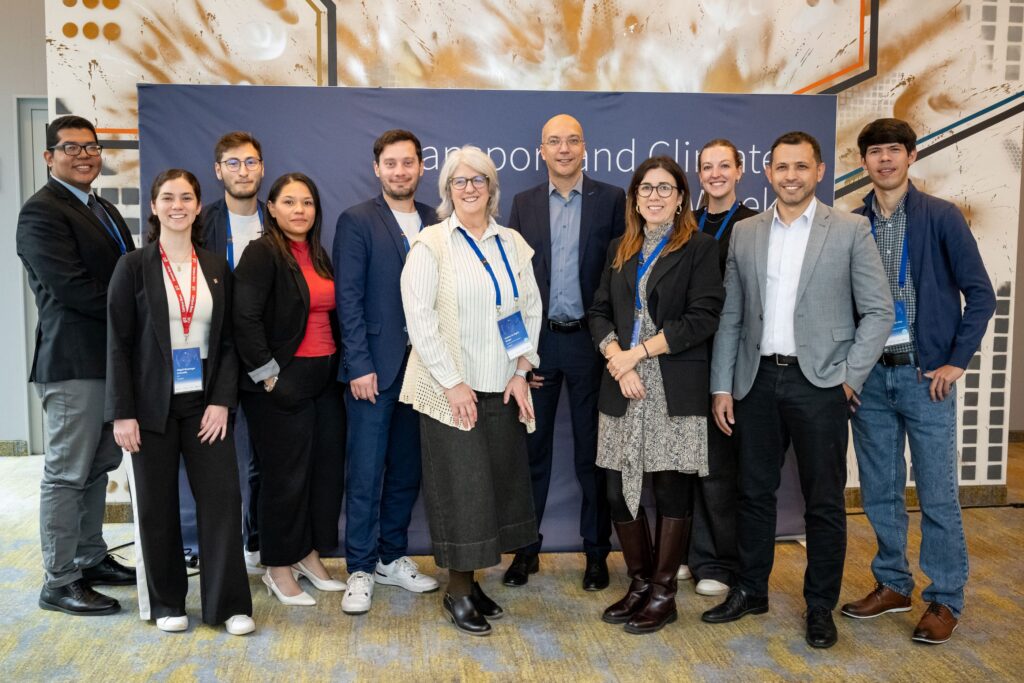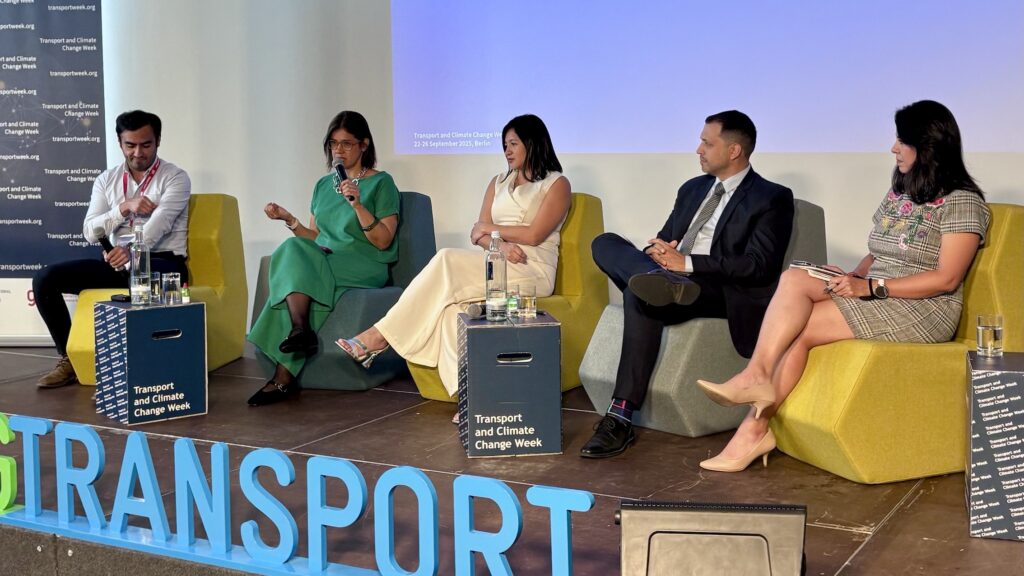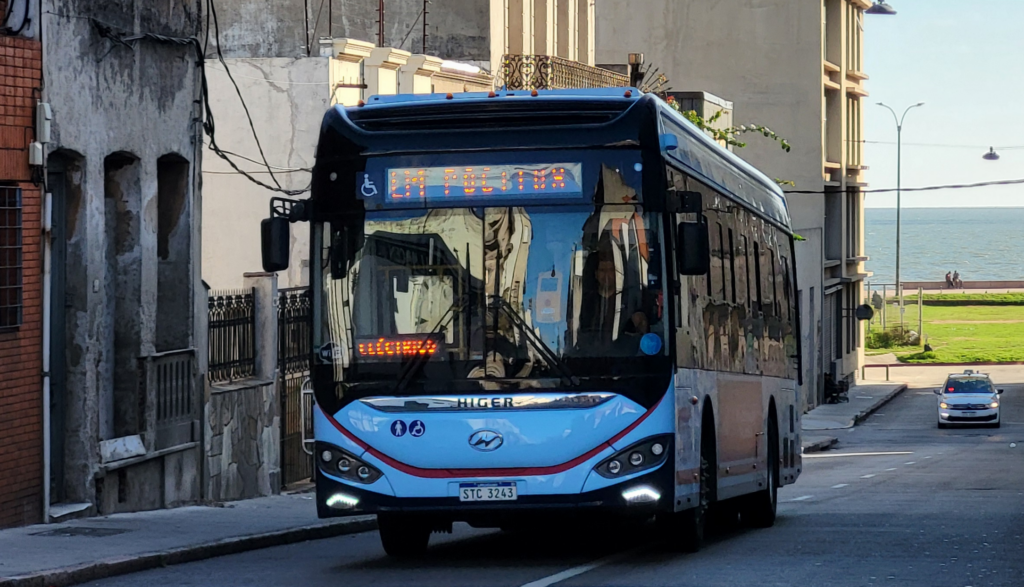
The E-Motion Programme, funded by the Green Climate Fund (GCF), marked an important milestone during the 8th Transport and Climate Change Week in Berlin with the launch of its Community of Practice. The interactive networking session brought together representatives from nine Latin American countries, including Panama, Paraguay, and Uruguay, all of which are supported by the Development Bank of Latin America and the Carribean (CAF) and GIZ.
In a dynamic exchange, country inputs from Peru, Panama, and Uruguay set the stage for dialogue, allowing participants to connect with fellow institutions across the region that are working on governance, finance, regulation, and capacity building. The session not only introduced the E-Motion programme to a broader audience but also laid the foundation for stronger regional collaboration to enable the sustainable transformation of public transport.
Programmes like E-Motion give us the opportunity to strengthen international cooperation across the region.
Carlos Sauer, Vice-Ministry of Transport, Paraguay
The launch took place within the framework of Transport Week, held in Berlin in September 2025. Ten years after the Paris Agreement, the event gathered 240 participants from 31 countries under the motto: “Time to Be Accountable – Showcasing Achievements, Driving Transformation.”
Organised with the support of the International Climate Initiative of the German government, Transport Week has grown into a flagship platform for advancing climate action in the transport sector. The 2025 edition centred on four thematic pillars, dedicating one day to each:

Regional diversity was a hallmark of this year’s edition, with delegations joining from Africa, Asia, the Caribbean, Latin America, the Middle East, Oceania, and South-East Europe. Technical trainings, panel discussions and networking events ranged from regulating clean vehicles, decarbonisation of informal transport, and scaling e-buses to financing sustainable mobility.
The E-Motion Programme strengthens the e-mobility ecosystem at local, national, and regional levels by combining vehicle fleet financing with technical assistance, including policy advice, business model development, stakeholder engagement, and capacity building – all with a strong gender lens. The initiative invests in large-scale e-bus fleets, light electric commercial vehicles, and fast-charging infrastructure to accelerate the adoption of clean transport, cut greenhouse gas emissions, and provide safe, reliable mobility solutions that connect cities and communities across Panama, Paraguay, and Uruguay.

The Programme “E-Motion” is funded by the Green Climate Fund (GCF), with the Corporación Andina de Fomento (CAF) serving as the accredited entity. Implementation is led by the Deutsche Gesellschaft für Internationale Zusammenarbeit (GIZ), which works closely with public and private partners to ensure the effective delivery of investments and technical assistance. Co-financing is provided by the International Climate Initiative of the German government in the context of the Mobilize Net-Zero project.
 Participants from Panama, Paraguay and Uruguay met at Transport Week 2025 in Berlin
Participants from Panama, Paraguay and Uruguay met at Transport Week 2025 in Berlin

Nicolas Becker
nicolas.becker@giz.de
Visit profile